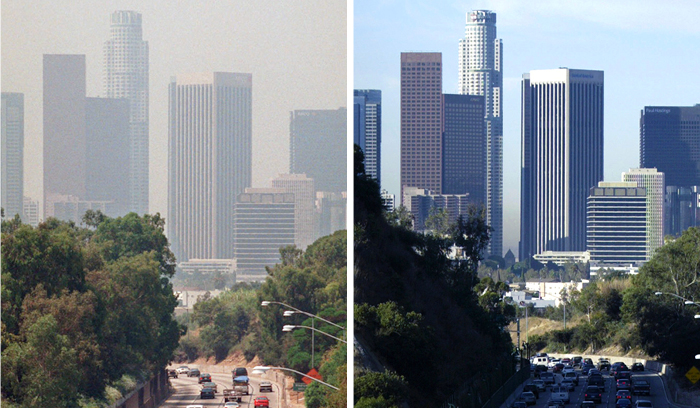Quarantining brings unintended benefit: a cleaner planet
No doubt, coronavirus/COVID-19 has had a devastating effect on our planet. The death toll continues to rise, and according to health experts, those numbers haven’t peaked yet. Every state in the country has some sort of quarantine in effect designed to keep people “safe at home.” Simply put, there’s not much good about this pandemic.
However, even with all of the chaos this pandemic has wrought, it has brought with it a few environmental benefits. Those benefits stem from the various quarantines leading to fewer people go about their usual routines that lead to the pollution of our cities, oceans, and air.
Venice, Italy, for example, is experiencing a major environmental breakthrough. The crowds of tourists who normally swarm the city of canals have vanished resulting in far less motorboat traffic on Venice’s canals. “The normally polluted waters of the canals are clearer than at any time many locals can remember,” says Sam Ball on France 24. The water now looks cleaner because there is less traffic on the canals letting the sediment stay at the bottom rather than rise to the surface from boating traffic.
“With fewer water taxis and boats ferrying the city’s tourists and residents along the canals, the air has become cleaner,” states Cailey Rizzo from TRAVEL + LEISURE. There are now no boats or traffic allowing not just the water to become cleaner, but the air and streets as well.
In cities across the world, streets have become far less crowded. Factories have either shut down or are in the process of shutting down and all airline flights have been significantly reduced. “From February 3 to March 1, CO2 emissions were down by at least 25 percent because of the measures to contain the coronavirus, : according to the Center for Research on Energy and Clean Air (CREA),” Rebecca Wright of CNN reports.
China, the world’s top polluter, contributing 30 percent of the world’s CO2 emissions, has also seen significant improvement in its air quality. Even Hong Kong is experiencing air quality improvements because of the coronavirus shutdown. “Key air pollutants dropped by nearly a third from January to February, according to data from Hong Kong University School of Public Health,” Wright reports.
The decline in harmful pollutants such as from motor vehicles and marine vessels came in exact correlation with the government of Hong Kong’s mandate that people work from home and stay away from public facilities. People working from home has resulted in a reduction in traffic congestion keeping air pollution at a minimum. Factories in China during this period are releasing less smoke from the industrial powerhouses in the southern cities of China.
It is clear that COVID-19 is a dangerous, very easily spread disease that is causing the world to take caution. It is also seen that the quarantines due to the coronavirus pandemic is not only keeping people safe but it’s reducing the amount of air, land and water pollution. From the waters of Venice to the busiest streets of Hong Kong, millions across the world are under quarantine, unintentionally giving the environment the reset that it needs.









